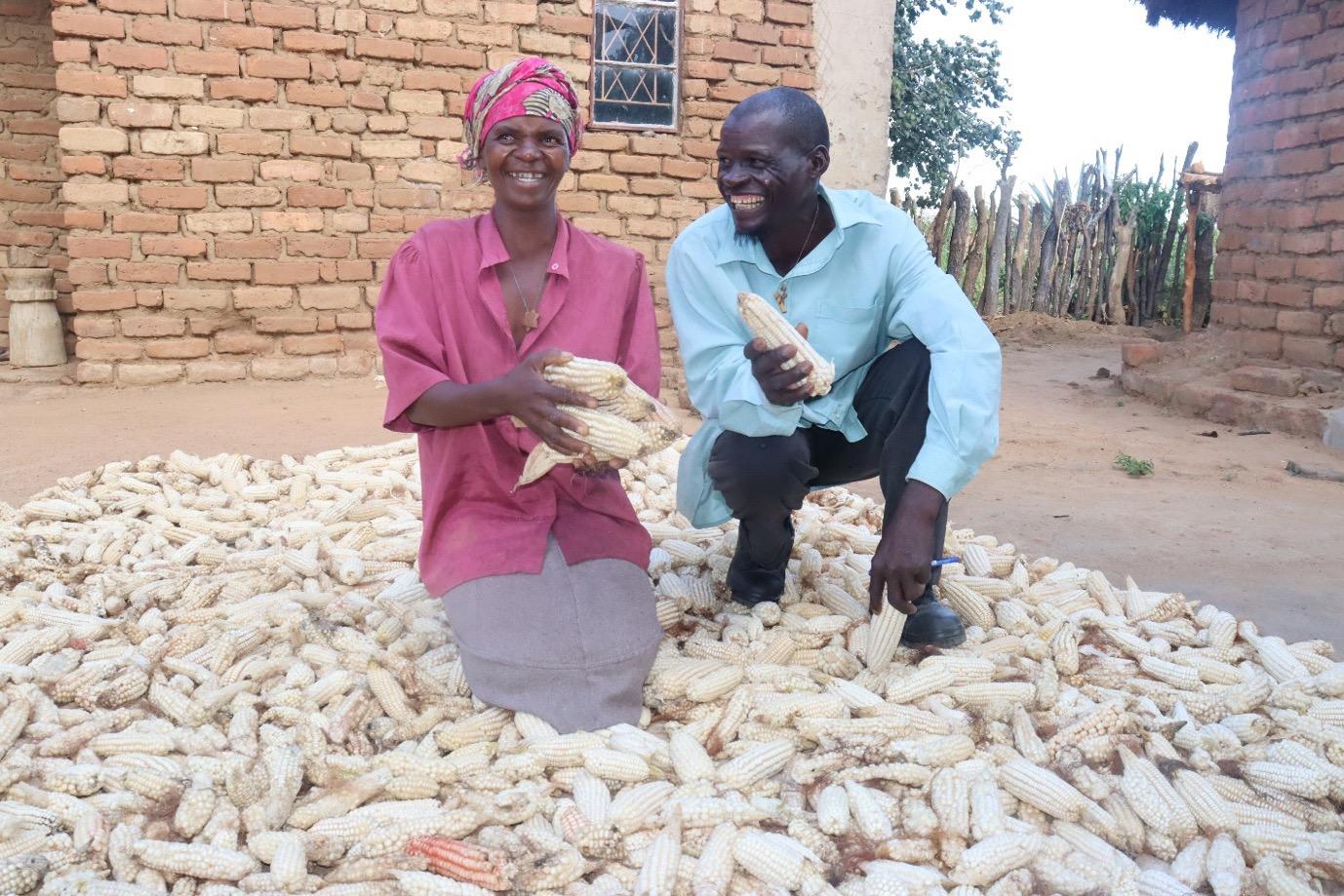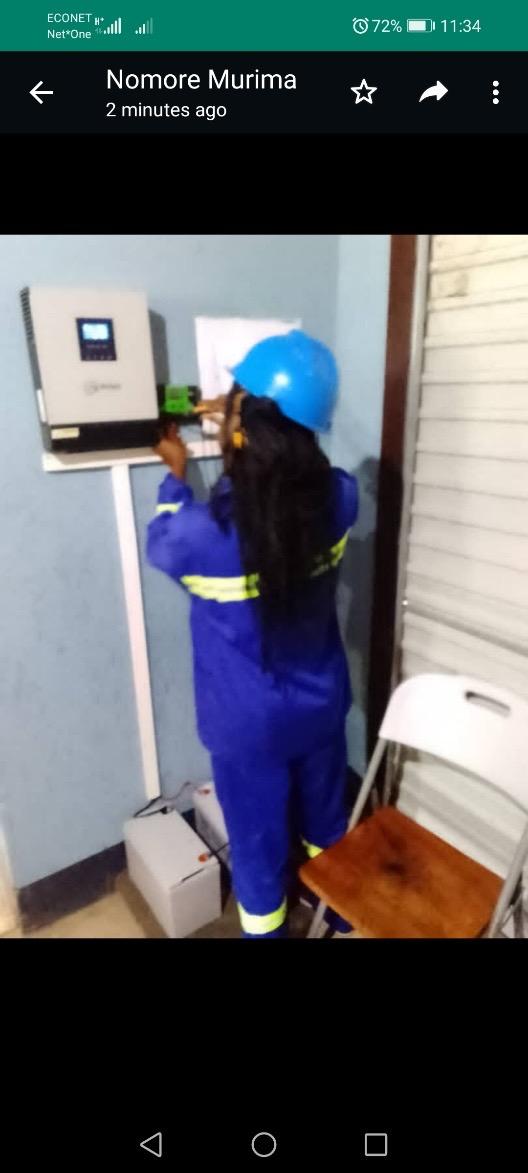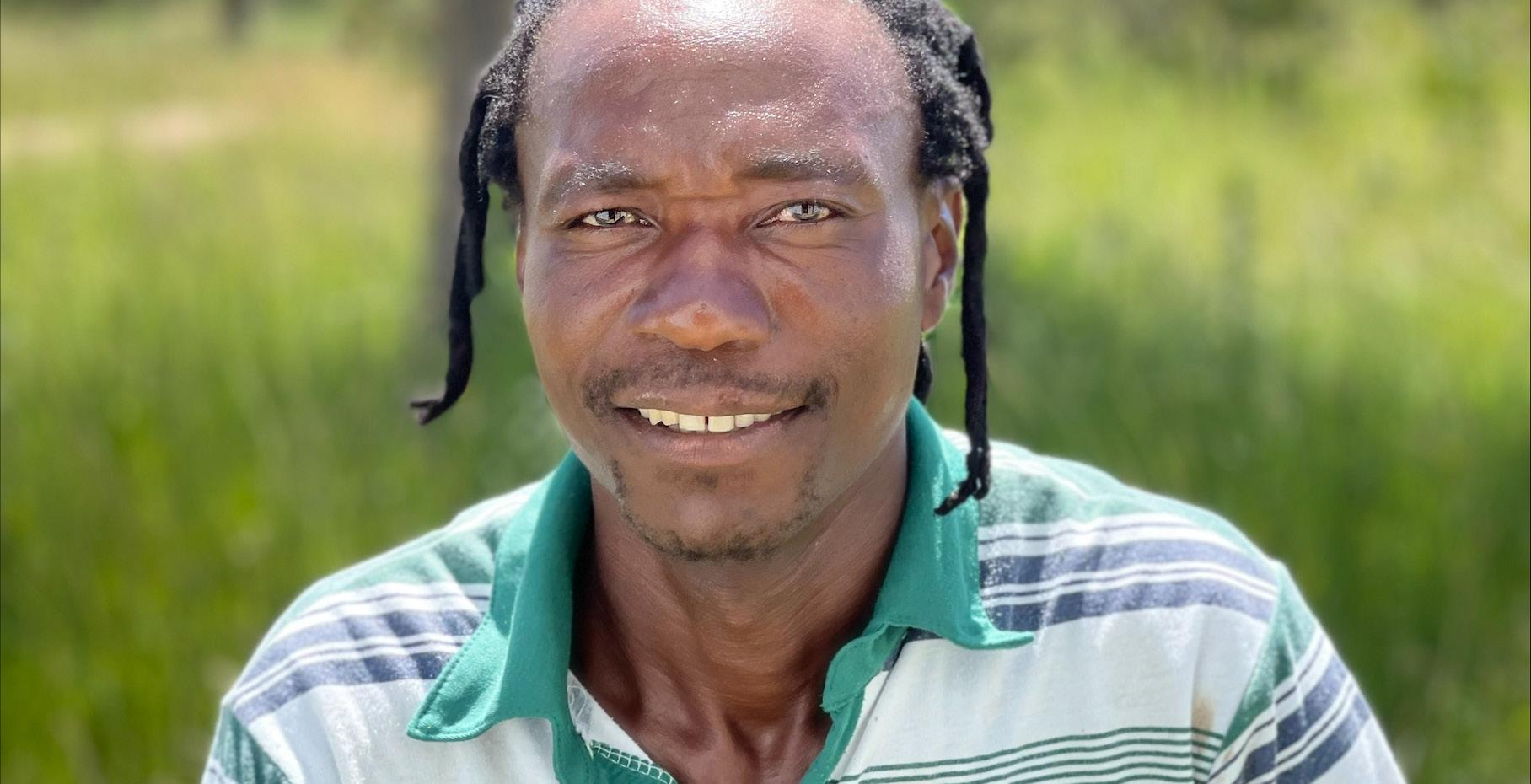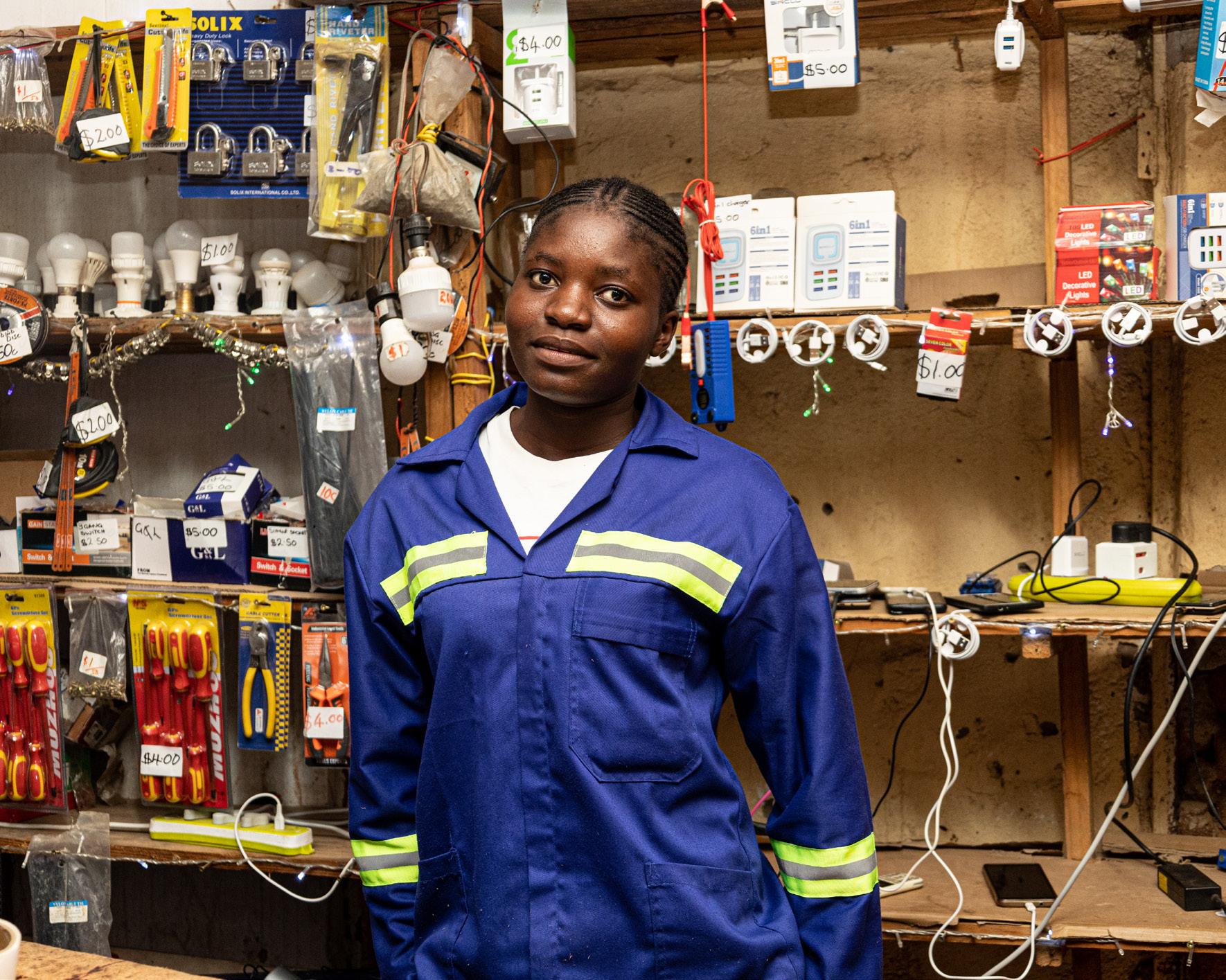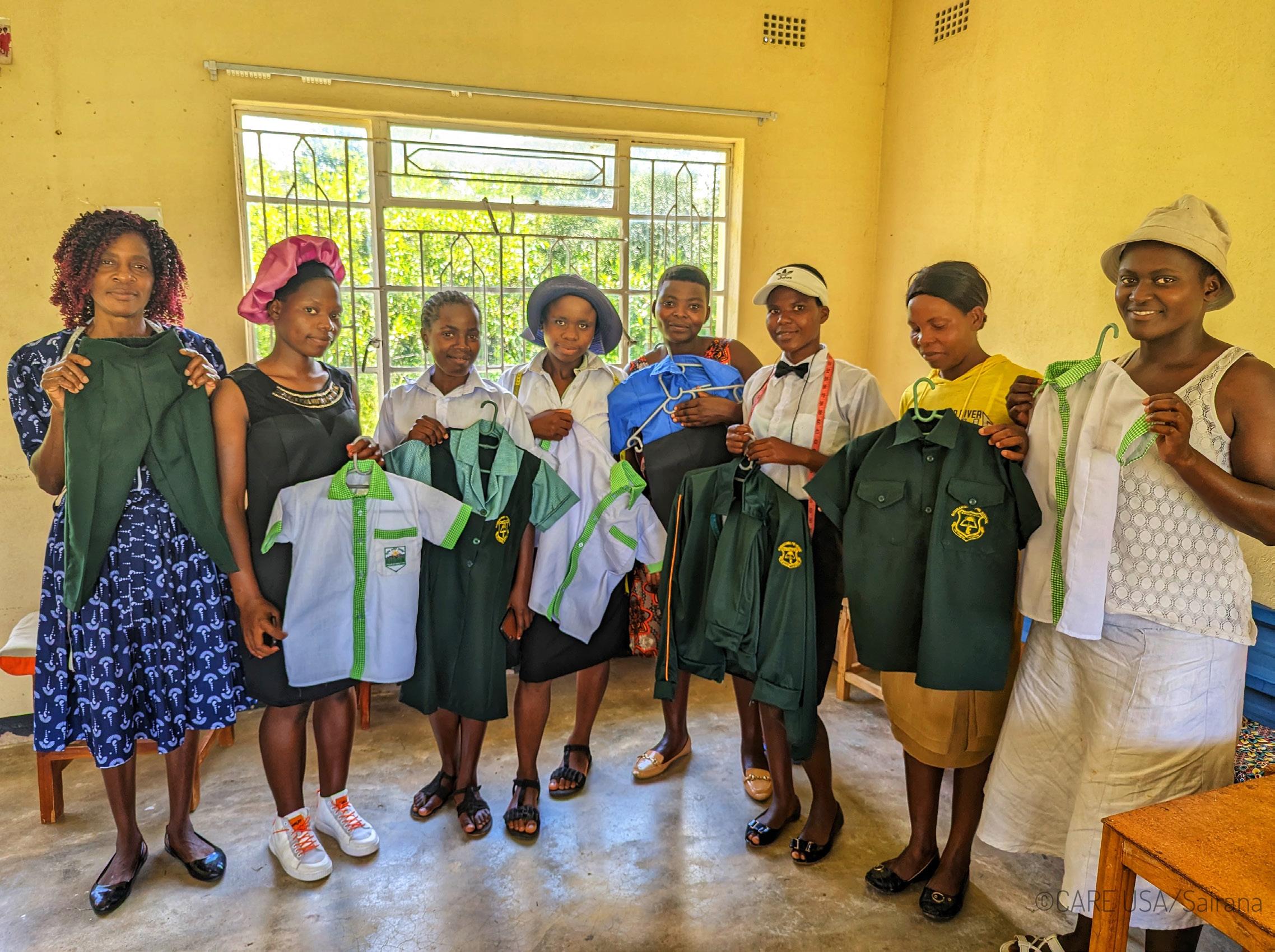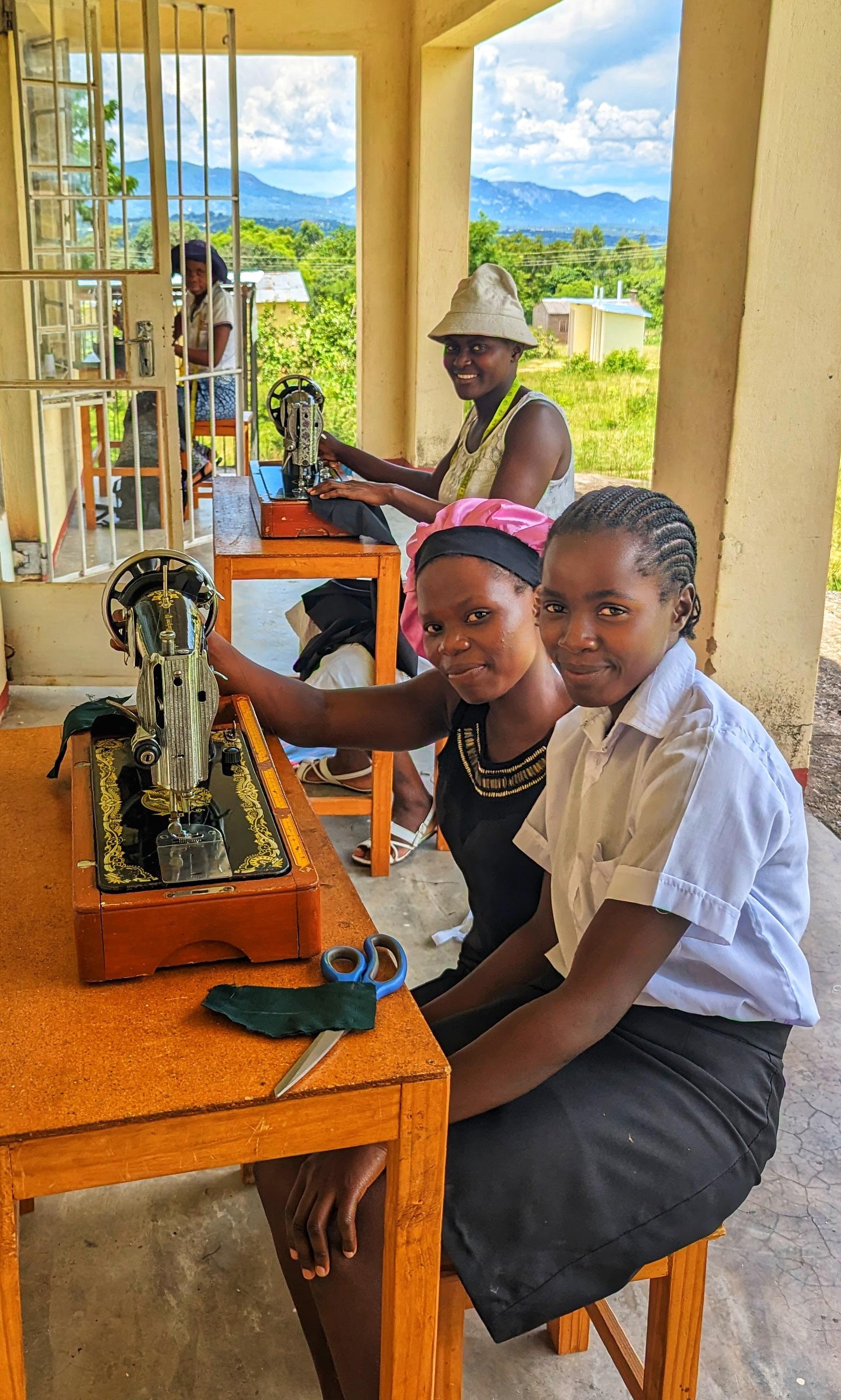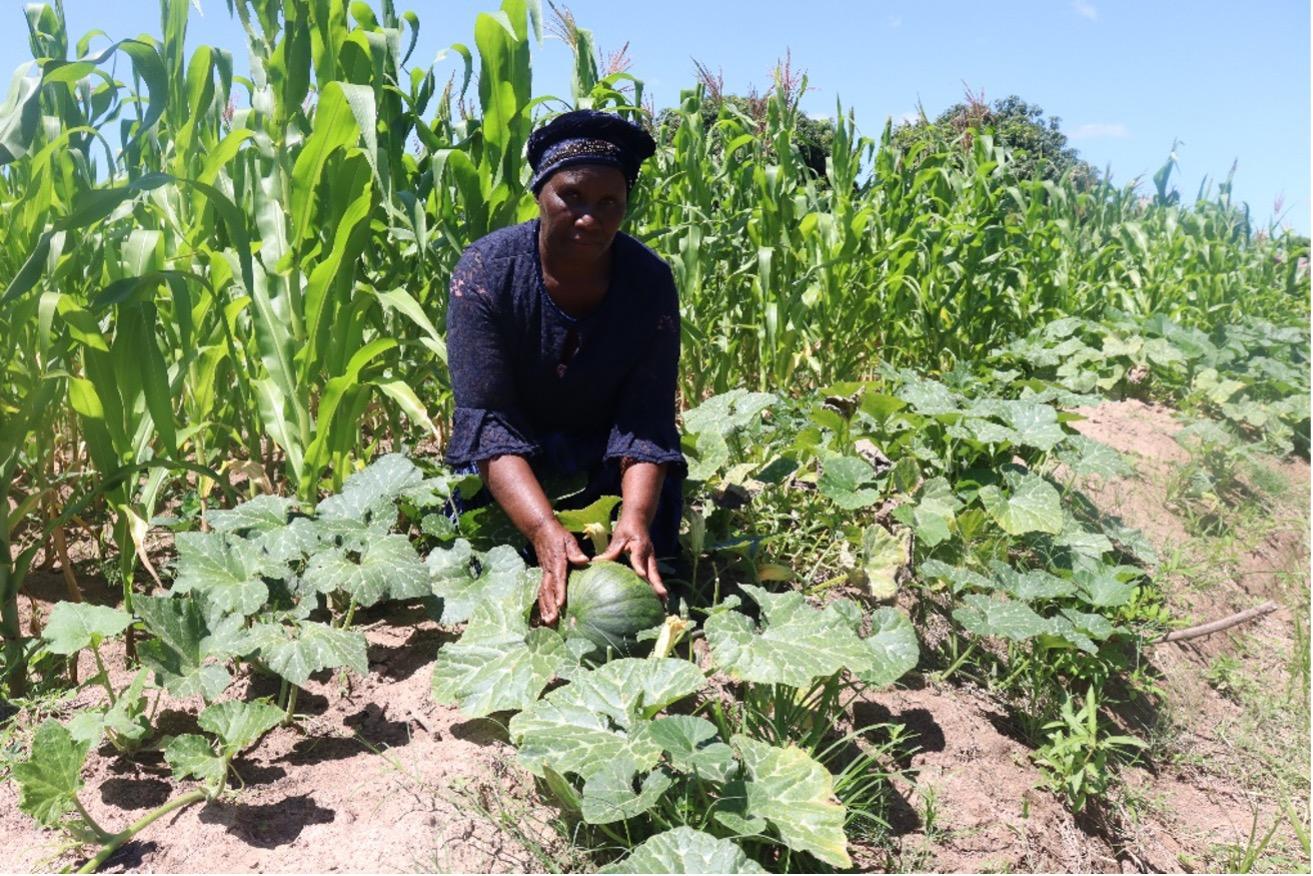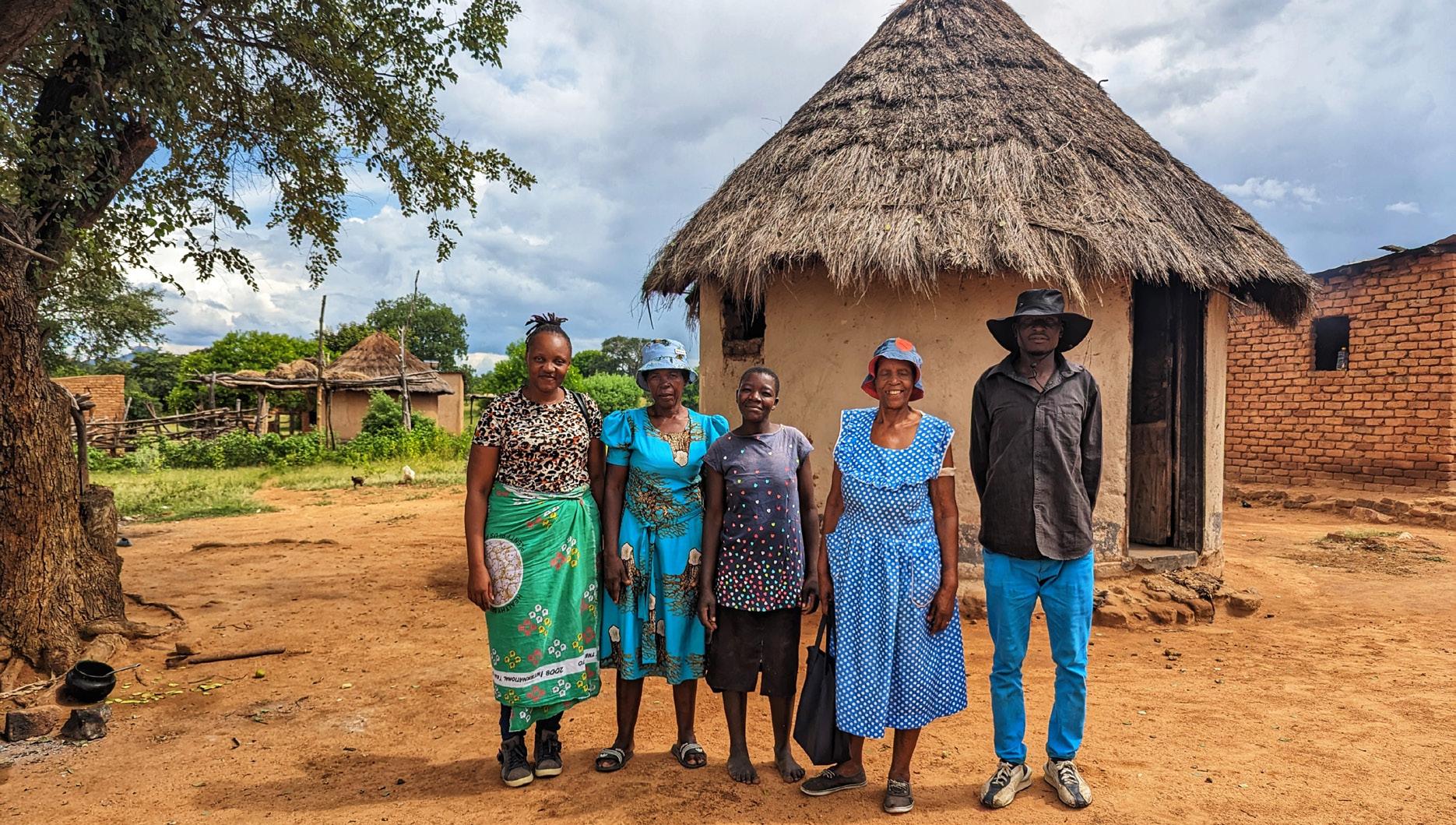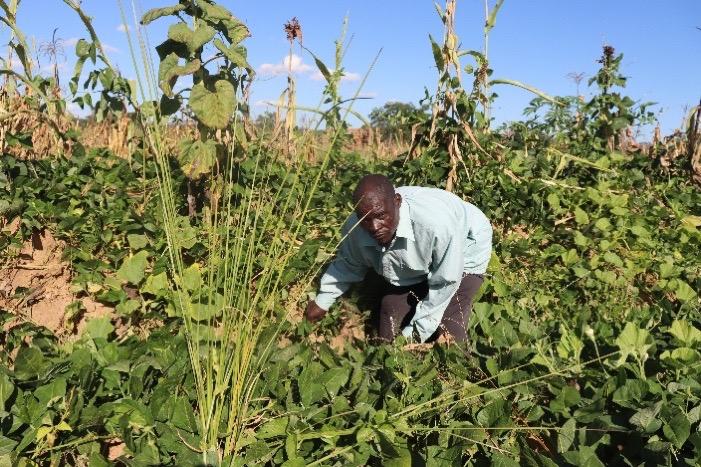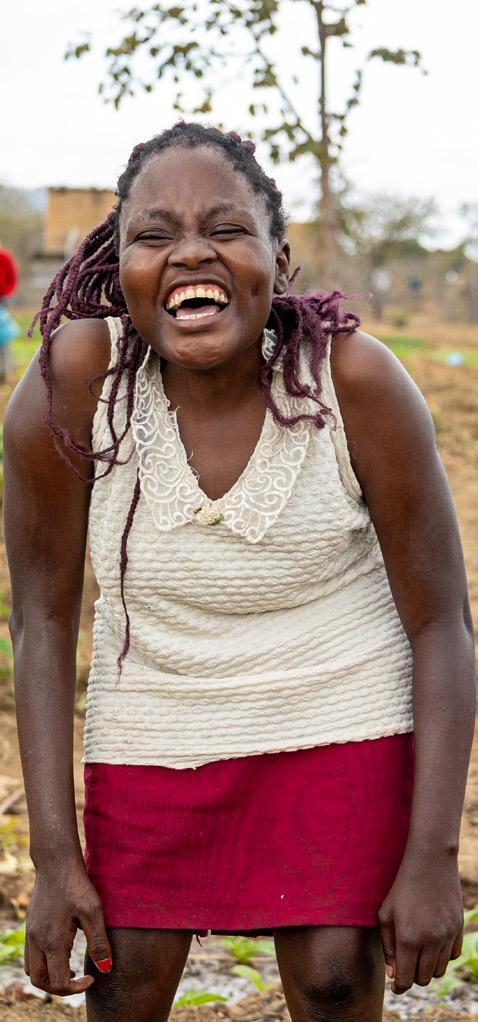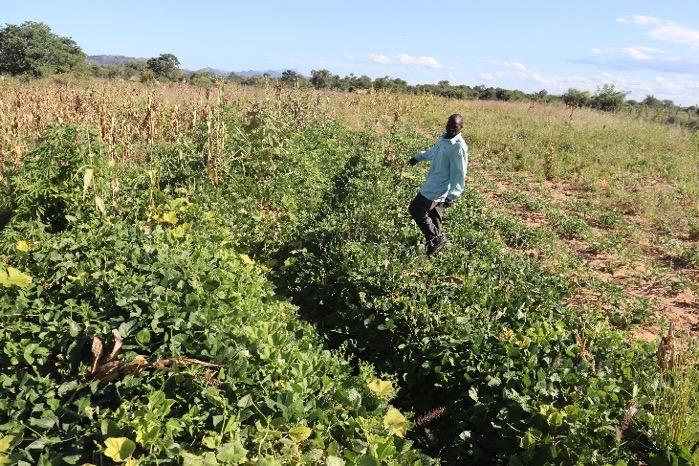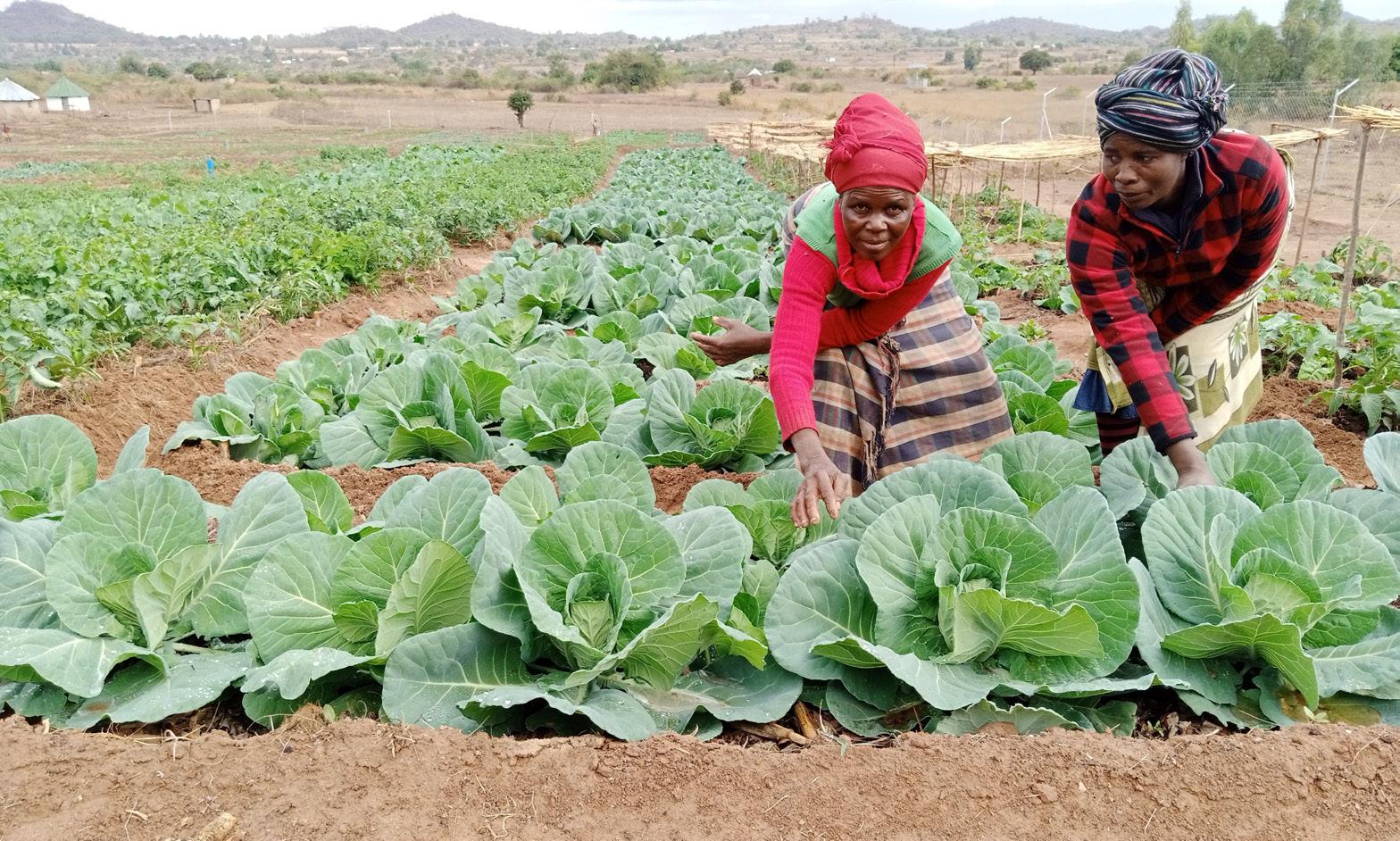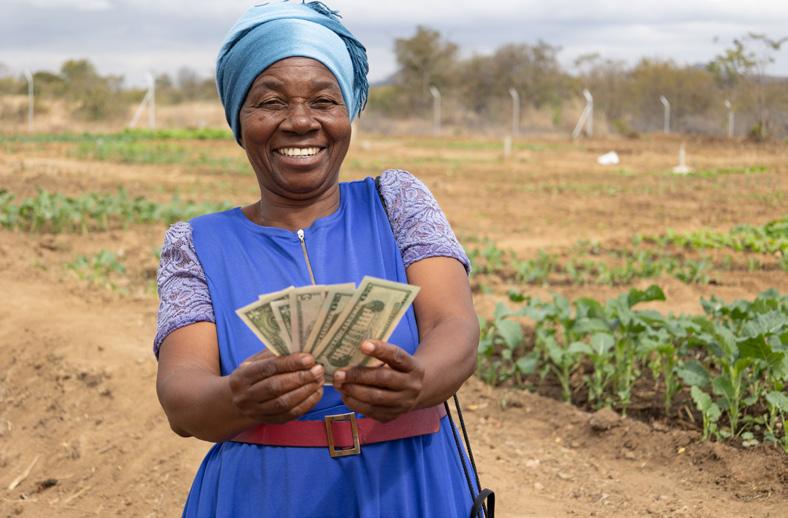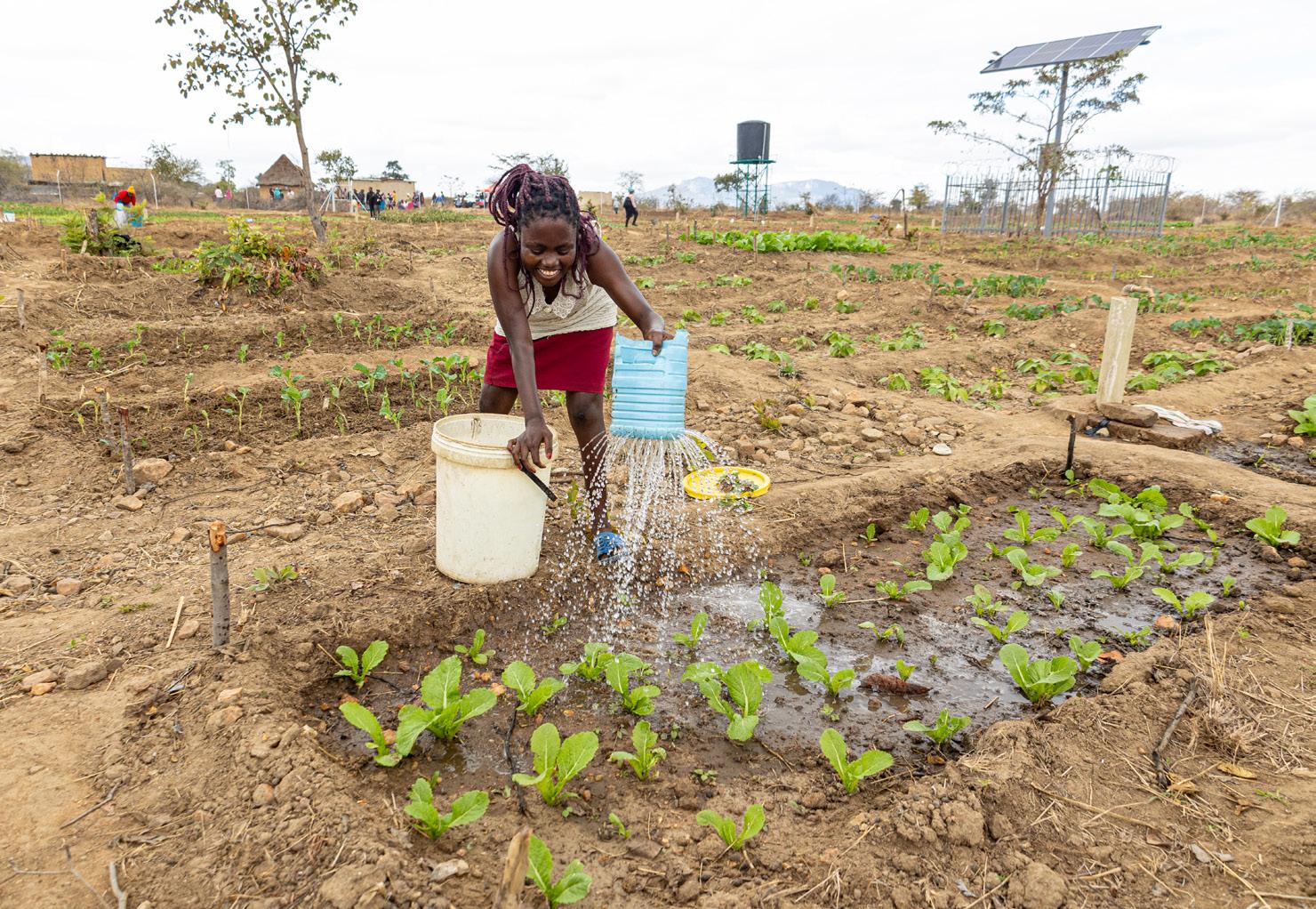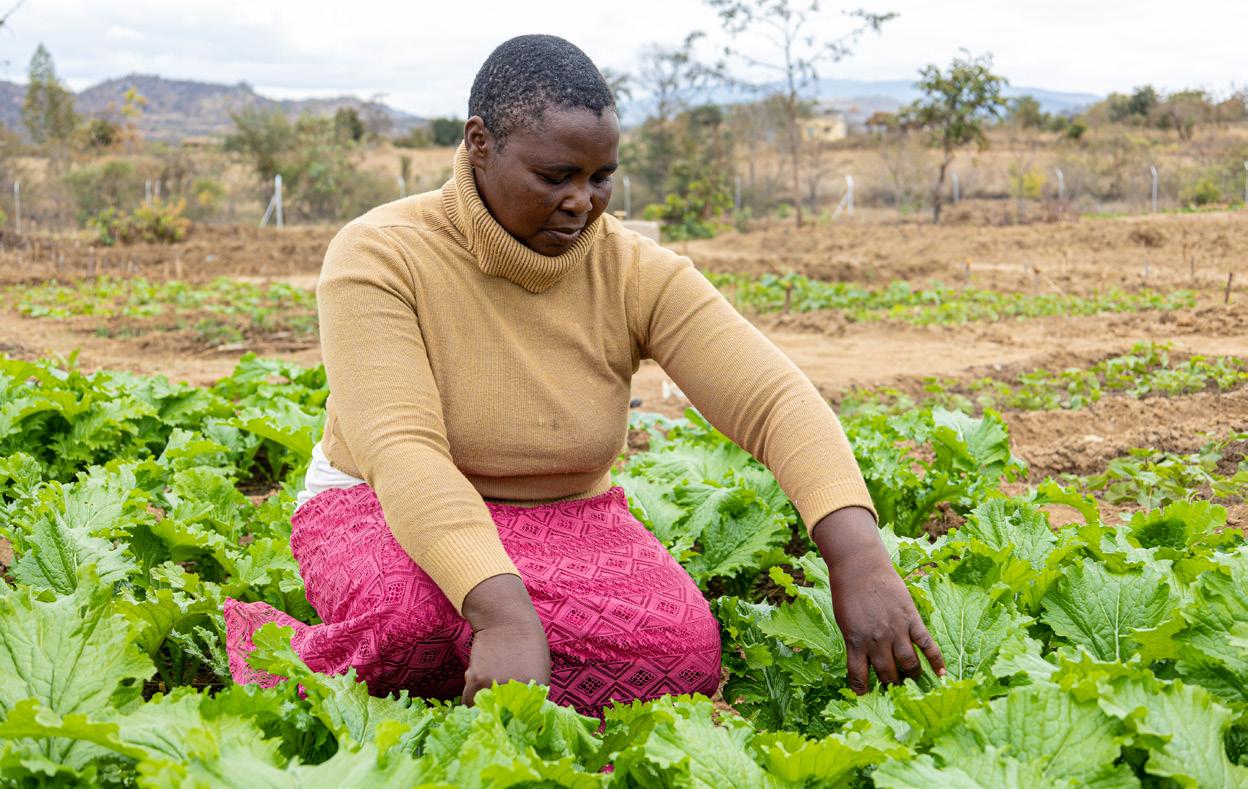Building Resilience Amongst Youths in Mutare, Zimbabwe
Takunda, meaning “we have overcome” in Shona, is a $55M fiveyear (October 2020 to September 2025) USAID/BHA-funded Resilience Food Security Activity in Zimbabwe. The program is being implemented by CARE together with partners: Bulawayo Projects Centre (BPC), Environment Africa (EA), Family Health International (FHI360), International Youth Foundation (IYF), and Nutrition Action Zimbabwe (NAZ). The primary goal of Takunda is to achieve “Sustainable, Equitable, and Resilient Food, Nutrition, and income security in Manicaland and Masvingo provinces of Zimbabwe.”
USAID Takunda will reach more than 300,000 participants with training and support for sustainable, equitable, nutritious, resilient food and income security. Of these, 173,000 will be youths (aged 19 to 35 years) who are going to be engaged in various activities in the program’s Youth Interventions Model. The model is informed by consolidated findings from at least six research studies undertaken during the program’s ‘refine and implementation’ year. Through these findings, USAID Takunda’s Youth Strategy intentionally streamlines best practices for meaningful youth engagement. Recommendations included fostering intergenerational partnerships, life skills training, and leveraging of existing youth-friendly spaces and youth champions. This influenced the program’s selection and adoption of Positive Youth Development-oriented approaches and interventions.
A recent visit to Gombakomba Training Center in Gombakomba village, Ward 6, Mutare in Manicaland province, gave insights into how the lives of a group of six female youths are being positively transformed through the enhancement of their skills, knowledge, and professional networks in a USAID Takunda funded Master crafts short course in sewing (six months long). FIONA MAPARANYANGA (24), YVONNE TIZAI (21), LORRAINE MUBVUTA (24), RUMBIDZAI GONDO (20), ENIA CHAFANZA (20), and RUMBIDZAI GAYA (25) have varying numbers of months in training. Their trainers, MRS. MURADZIKWA and MRS. MUSETA were also available when the interviews were done. The Master crafts also involve community apprenticeships facilitated by local artisans like the trainers.
Amongst the six female youths interviewed, most shared that they had successfully written their ordinary level examinations but failed to get back into advanced level education due to a lack of finances to fund their school. Only a couple had failed the exams. Consequently, the girls had to stay home doing nothing meaningful to earn a living. Considering the high rate of unemployment in Zimbabwe, it is almost impossible for youth to secure employment with such a level of education.
For those married, they took care of family and waited on provisions from their husbands which were tough because, being informally employed, their husbands did not make much money, and financial strain was always evident in their planning for household day-to-day needs. Four of the youths shared that the major reason why they took on training in sewing is that they would like to enhance themselves and their families by making sewing a livelihood. The remaining two shared that sewing interests them and, in addition, they would like to
make a living out of it.
“I am one of many siblings, and so if I make sewing a source of income, I can be able to help my family once I begin to make money,” said Yvonne Tizai.
So far, the youths have had positive experiences in their learning journey, namely acquiring advanced level knowledge in handling sewing gadgets, threading, as well as cutting and designing to make several types of clothing. They are happy with the course content as it is relevant to the market needs. The youths have high hopes for the future after the training. Some shared that they plan to move to a bigger city, for instance, Mutare, which is the nearest, and then through a relative, try to find sewing space to begin working independently, obtaining client networks too.
“After my training ends, I plan to work whilst at home. I do not have sufficient funds to pay for rentals for my own sewing space, so that is why I plan to begin at home. However, I have not yet decided on exactly what to sew because, through my training, I learned to sew various types of clothing.” said Lorraine Mubvuta.
Asked how much profit they were making per month, the girls highlighted that this depended on a particular month as influenced by demand. For instance, sales during the time when schools resume were high in comparison to sales during a normal month which would be low. The youths shared that the advantage of sewing is that one made good profits depending on the number of orders placed and gave an example of profits that they had just made from sales of boys’ school uniforms to a nearby primary education school.
“When schools opened at the beginning of January 2023, we received an order for 12 primary school-going boys’ uniforms. The breakdown of costs incurred was such that we needed 2 meters of cloth per uniform at USD6 per meter to give USD72 for buying cloth. Then 82 buttons were needed for the 12 uniforms costing USD8.40. The sewing thread needed for the work to be done was USD5, 12 zippers needed cost USD6, and the total costs were USD91.40. We sold each uniform at USD9 and got a total of USD108. Subtracting our costs, we made a profit of USD16.60 for this order. It took us less than a week to complete the order; thus, the more orders we get, the more profit we can make.”
Some challenges they face are power outages which have become a menace throughout the country.
“We are training 21 female youths in total. However, you were only able to interview 6 of them who came today because when there is a power outage like this, those who will be at the stage where they need to do overlocking cannot as the sewing machines are electrically powered,” explained Mrs. Muradzikwa.
Another challenge is that the sewing machines are few, while the number of students is growing.
The Master Crafts program of USAID Takunda has the potential to provide adequate vocational training to youths for better livelihood choices.
Written by: Rumbidzai MatembaMutasa
© Sairana Ahsan/ CARE
© Sairana Ahsan/ CARE
a farmer, lives a few meters from the home he was raised in, in Gwauya village, Zaka. Reminiscing on his early years, Isaya recalls a time when his village and fields received more rainfall, and his family reaped bumper harvests compared to the constant bad seasons they are experiencing now. Inconsistent and low rainfall patterns, a result of climate change, have not been adequate to cater for their crops throughout the farming season. Water sources continue to dry up, forcing his family and livestock to walk long distances to the next water source. Grazing pastures have been repurposed to make way for housing settlements, while formerly dense forests have been stripped bare of their foliage.
“An increase in our population has led our leaders to give young couples space to construct their houses here. This has left us with limited grazing lands, and our livestock are suffering more because of this,” laments Isaya with concern.
Today is a source of worry for Isaya, as he does not know what tomorrow holds for his children and grandchildren if the amount of rainfall continues to drop with each season. Food is not as readily available, and his family do not have excess to sell like before at his parent’s homestead. Access to water for both domestic use and farming is not the only challenge the Mutakis face; the soil in their fields has been used for generations and is
Improved Quality of Life for Ngonya Village Households Participating in the USAID Takunda
VSLAs
Representatives of households who are a part of at least 5 VSLA groups in Ngonya village, Ward 12, Mutare, Manicaland Province, availed themselves (amidst the rains and busy farming season). They met with USAID Takunda and CARE USA staff to share their experiences. It was an eye-opening engagement that provided insights into how their lives improved because of participating in the VSLAs and how their groups are growing as other community
members realize the positive change. Ngonya village is widely a small-scale farming community near the Marange Irrigation Scheme. “When the USAID Takunda staff came to our village, we joined the village savings and loan association (VSLA) training since we did not know how to participate in them. We were trained, and now we have the knowledge, and we possess the certificates which show that we underwent training. We are grateful that USAID Takunda collaborated with educational institutions which gave us the certificates,” said a participant.
Takunda, meaning “we have overcome” in Shona, is a $55M five-year (October 2020 to September 2025) USAID/ BHA-funded Resilience Food Security Activity in Zimbabwe. The primary goal of Takunda is to achieve “Sustainable, Equitable, and Resilient Food, Nutrition, and income security in Manicaland and Masvingo provinces of Zimbabwe.” The program is being implemented by CARE together with partners: Bulawayo Projects Centre (BPC), Environment Africa (EA), Family Health International (FHI360), International Youth Foundation (IYF), and Nutrition Action Zimbabwe (NAZ).
Before joining VSLAs, members of this community shared that they struggled financially. Some of the shared financial hurdles
agreed to try this as a household.
During a community meeting, we were then chosen to be Lead farmers in our village so that Takunda could also conduct the training in our area,” he narrates with a smile.
The results the farmers have witnessed in their resilience design demonstration plots and the doubledug beds in permagardens are a marvel. The resilience structures incorporate nutrition-sensitive agriculture (NSA) by growing a variety of nutritious crops to enhance dietary diversity. A single household can now obtain cereals, legumes, fruits, and vegetables. Diverse crop production is complemented by small livestock production (chicken and goats), which is key in providing animal-sourced protein and organic manure to feed the crops. The output at this household inspired wardbased Agricultural Advisory and Rural Development Services (ARDAS) staff to start planning toward a field day at the Isaya’s homestead in the coming months.
The resilience design activities have not only helped them in achieving food security but also in enhancing social cohesion among community members as they are sharing ideas, exchanging notes, and experiences. “The resilience design contours fostered social cohesion in our community as constructing them requires us to work together. We use peer-to-peer monitoring to check the quality of our crops in different resilience designs fields, such as the pumpkins you see in this field. We have group members with good crops planted on top of their contours. Some are even surpassing what you
see here,” said Mrs. Mutaki whilst holding a pumpkin on top of a berm in her resilience designs plot.
The Mutaki household also participates in other Takunda-led interventions, such as the village savings and loans association (VSLA) and Care groups. The family hopes to be a model resilient household in Ward 28. Mrs. Mutaki and Gogo Mutaki (Isaya’s Mother) are members of the cluster’s Elderly women’s groups. They are active and play a crucial role in encouraging other women to join their farmer field business school (FFBS) or resilience design (RD) group. Mrs. Mutaki said, “Our son usually helps us prepare the land and supports us during the farming season. During his last visit at the end of 2022, we sat down as a family and planned for the next season. Thanks to the training we have received under Takunda, we were able to give him enough space to help us plan, to listen to his plans and implement that”.
added, villages have noticed the changes at my homestead. I encourage them to join the Farmer Field Business School (FFBS). Participating in most of Takunda’s interventions has helped to understand the impact of this project at the household level. I am a member of our savings group, where I obtained a loan from VSLA to increase the number of broiler chickens I rear for income generation. The project had slowed down after I encountered financial challenges some time back.”
that our future is bright as a family. We would like hunger and poverty to be a thing of the past in our community. We expect a bumper harvest since we have good maize crops this season”.
Written by: Godfrey Muvhuti
In his closing remarks, Mr. Mutaki said, “I would like to thank Takunda for helping us with knowledge every time they visit us; I have confidence
included the inability to secure basic food and household items (like cooking pots, water carriers, and warm blankets for the winter season), failure to pay school fees, incapability of securing agricultural inputs and pesticides, difficulties finding manure for gardens, no productive assets, and no savings. One participant narrated the extent of the hurdles, “My financial struggles were bad; I remember that I was able to get soap to bathe children only when going to school and to wash their school uniforms only. I have ten children in my care, so I could not afford all their school fees; they are in primary and secondary school. I made them take turns going to school. For instance, those sitting for crucial examinations would go to school that year while the rest stayed at home, and so on. This is what I could afford.”
Now, VSLAs are a source of income for many households. First, they can afford basic food and household items and are not going hungry. Second, they can afford to pay school fees for their children. Some write up payment plans for school fees in agreement with school principals, and they meet their obligations. Third, acquiring agricultural inputs is easy
since they have ready savings. USAID Takunda partnered with Arda Seeds (Private) Limited. This is a whollyowned subsidiary of the Agricultural and Rural Development Authority, a Parastatal under the Ministry of Lands, Agriculture, Fisheries, Water, and Rural Development. Some VSLA group members were selected as agents to sell seeds for Arda, while they bought some for use. They are, therefore, able to earn some extra income.
Fourth, many households have small livestock like goats and chickens and are obtaining manure for gardens from livestock pens. Those participating in VSLAs can afford to dress well, and their social status is enhanced.
Asked if they would continue to engage in VSLAs, most households said they would because they were satisfied with the benefits. One elderly woman explained that her group had grown by two members.
“We will not stop participating in VSLAs because we are generating
incomes and have learned to care for each other. We support each other’s income-generating activities like banana selling, pot selling, vegetable selling, livestock selling, blanket selling, etc. Each group has a goal, and we need to achieve our goals. Supporting each other will ensure that we all make it.”
The group members also shared the key things which they learned.
“I learned that with sufficient guidance and knowledge, we can earn a decent livelihood through VSLAs income invested as capital into income generating activities. We did hear about VSLAs, but we did not participate in them because we did not understand what they are, how to do them, and why they are important. Consequently, we struggled financially. We now know we engaged in them and overcame those financial struggles.” For some groups, monthly contributions per member increase as agreed, suggesting growth.
Besides their monthly contributions, which range from USD1 to USD10 per group member, some groups have
a social fund that assists members in case of an emergency. One group said it sets aside USD1 per monthly member for this social fund. Households are also keen on getting USAID Takunda support in creating linkages with financial institutions and the private sector.
To date, 10,261 individuals have been reached in VSLAs by USAID Takunda, and these are 8317 adult women, 1944 adult men, 1005 young women, and 334 young men. Thus, the participation of women is 81%, against male participation of 19 percent. The program continues to use male engagement during men’s fora to sensitize men on the benefits of VSLAs and targets technical vocational education training (TVET) graduates to view VSLAs as a source of income which they can, in turn, invest into IGAs in which they apply their skills and create employment for themselves.
Written by: Rumbidzai MatembaMutasa
© Sairana Ahsan/ CARE
ISAYA MUTAKI (65),
JANUARY 09, 2023: Ward 28, cluster 2 FFBS Host farmer Mrs. Mutaki holding a thriving pumpkin on top of her bioswale, “As farmers in our village, we are seeing great change in the way we used to plant our crops. This is because of the training conducted by Takunda here. We are also comparing the crop cover and quality of crops on top of contours, taking lessons and helping each other. This will help us to improve in the future.” © Godfrey Muvhuti / TAKUNDA RFSA
January 17, 2023: A Marange Irrigation farmer stands at the centre of his sunflower garden shares, “Takunda linked farmers to ARDA seeds for contracted sunflower seed multiplication production. They benefited these as they earned cash profits after paying back the loaned inputs.” © Gift Bvekwa/CARE
Continued ... from Page 1
At his wit’s end, Nomore volunteered his land and time to be a host farmer for resilience design – after all, his portion of land had proved to be unproductive. The apportioned section of his land was fashioned into a demonstration site as a Farmer Field Business School (FFBS) where peer farmers convene and share knowledge on agriculture and related practices. Through the FFBS at Nomore’s homestead, farmers learnt how to harvest underground water – a technique that would prove fruitful to Nomore’s harvest. During planting season, he inter-cropped maize, sorghum, pearl millet, legumes, nuts, and butternuts. He then proceeded to plant fruit trees likethe pawpaw, guava, banana, and avocado trees. He opted for these trees not only to compliment food crops, but cto get a shade at the homestead, and eventually helping to preserve moisture underground. Nomore, planted stock feeds for his livestock to cater to the peak hunger period.
On contours, Nomore and Angeline planted cowpeas and have since harvested two buckets of cowpeas and repurposed the leaves as vegetables. Looking forward to selling his produce to get more income, Nomore had this to share, “From this field, I am expecting to harvest more than seven buckets of cowpeas and dried leaves. This means more income for me during the dry season,” as he hopes to sell the excess produce.
Nomore appreciates the journey that Takunda has exposed him to that has resulted in him acquiring
deep knowledge and understanding of practicing a lucrative farming method in dry areas. When he was asked, Nomore reviewed he was expecting 12 bags (600kgs) of maize this season, compared to the 200kgs he got the previous year after employing the non-RD planting concept. Furthermore, Nomore is also expecting more than eight bags (400kgs) of pearl millet and had already harvested 6 bags (300kgs) of sorghum by the time of interview.
When asked if he had noticed some food security improvements, Nomore had this to say, “Looking at the amount of food that I have in stock so far, I am confident that I am not going to buy any food for consumption throughout the year.”
As this achievement is not enough for the family, Nomore’s wife Angeline, is participating in village savings and lending associtions (VSLA). As a result, the family was able to borrow money from the VSLA group and started a poultry project whitch15 Sasso.. The couple uses small grains to feed the chickens which are less expensive. Furthermore, Nomore’s family is getting some income from livestock activities mainly goats and indigenous chicken. In 2023, they earned USD$105-00 within three months from selling goats and USD$24-00 from indigenous chicken.at USD$35-00 and USD$6-00 respectively.
“We slaughtered a goat for family consumption. We are planning to continue doing this at least two times per year so that our children get some meat. As for the indigenous chicken, we do not spend two months without slaughtering,”
added Nomore.
The household is taking advantage of local functions and individuals who come to buy chicken and goats at their home and others. Also, Takunda activities help a long way in motivating them to remain practicing resilience design.
However, Nomore’s journey could not come without any challenges. He asserted that land disputes arose in the community which were later solved amicably. Also, the germination of ground nuts and sorghum was poor which reduced the plant’s expected population. In addition to this, Nomore cited that his fruit trees struggle due to livestock since he does not have a fence to protect his field. He is also facing market challenges to sell his dried cowpea leaves.
In the future, Nomore expects to establish an irrigation facility which he views has an opportunity to produce all year round. He has emphasized that he does not envision himself being formally employed, hence there is no need for him to look for any job given the knowledge gained from Takunda, that has contributed inboosting his household income through various initiatives. Nomore sees himself beingat an advanced stage of establishing a backyard garden, and he is looking forward to growing nutritious vegetables. Nomore is planning to grow a lot of stock feeds as a way to sustain his livestock during the dry season.
Written by: Kaizer Makope
Continued ... from Page 1
In the community, Elias’ name became synonymous with genderbased violence and mayhem influenced by his low social capital. He emphasizes, “I have changed. I now spend most of my time working for my family’s survival. The community is shocked to see that I no longer indulge in acts of violence besides the fact that I am human; I have a temper sometimes.”
Having gone through the community visioning process for his community, he attended complementary sessions on Gender, Equality, Diversity, and Inclusion – Social
Analysis and Action (GEDI-SAA) and other Takunda-led interventions where violence was consistently underscored as an enemy of successful development. During feedback after participating in the Training for Transformation, Elias shared, and the participating community members unanimously agreed that “At home, my children do not suffer emotionally, and when they see me because there is now peace, love, and happiness at home. They see a friend and a father.” He has gone on to support his wife to participate in a village savings and loans and jointly attend Takunda and other partner sessions so that we grow in together while helping
each other to take good care of the children.
As the Vice-Chairperson of Ward community-led monitoring and evaluation committee (CLM & E), the community is inspired by the prospects of transformation in their locale under his leadership. “I am a confident leader, and I encourage others to work hard rather than waste time and energy in violence. I am a farmer, I am a gender champion, I am a vice-chair, and I am happy.”
Written by: Shingirirai Mashangu
July 26, 2023: MARVELLOUS MWAZIKANA (25) uses a home made spray tin to irrigate one of her garden bed. “When we started digging, we had to pour water on the ground first to make digging easier. It was difficult for me to dig so my mother and siblings had to help me.” Marvellous was part of USAID Takunda’s first cohort of students at Marange Vocational
NOMORE GWENDA (Host Farmer) harvesting cow Pease which he planted in the contour ridge. © Kaizer Makope / CARE
July 11, 2023: Annah Gundete and Georgina Mbera tend to their vegetable garden in Ward 28, Zaka. The Fabiola cabbage planted in a row at the solar-powered garden, has a very early maturity rate of 65 days. The size of the cabbage head has benefited from the double-dug concept synonymously known for preserving moisture in the soil, and t’s fertility. © Fortune Tafirenyika/ CARE
July 26, 2023: At 63, EVAR MUSHAMBI from Muchineuta Village in Ward, Mutare counts the money she has earned knowing she can now upgrade her kitchen. “I still have the same kitchen cupboards as I did
garden. © Charmaine Chitate/ CARE
